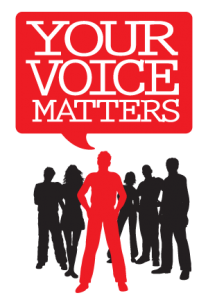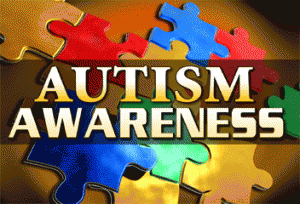 On a blog dealing with autism, the title may put some on edge. Not all autistics can speak verbally and even many that can or find another way are often not heard or even ignored.
On a blog dealing with autism, the title may put some on edge. Not all autistics can speak verbally and even many that can or find another way are often not heard or even ignored.
But that’s that not really what I’m trying to address right now. Instead, I’m talking to you… the one that comments or shares what I write and says “he says what we all think” or “this is so much like how it is for me”. Don’t get me wrong, I appreciate that, but still, I encourage you to find your own voice. Don’t just share what I write and say “ditto”, but to create your own or to still share mine but to add in yours on top.
This is also to those that say “that’s not how it really is because my child is different” or “you give people a false impression with your feel good BS”. To you I say, go find your own voice. Leave mine alone.
Here’s the thing, we have all heard the one classic autism quote, the one that defines everyone by defining no one: “If you meet one person with autism, you’ve met one person with autism.” And we all know it to be true. And yet we still strive for commonality and relatability and we still hate those that state something to be true when it’s so obviously not for us. Well, ok, maybe only a small few hate. But they’re loud.
We have parents that resent everyone comparing their child to Grandin, Fleischmann or *shudder* Rainman, we have parents hating other parents because they’re not positive or negative enough, we have autistics hating parents because they speak from a parents perspective and don’t consider the child’s and then they hate parents for speaking of the child’s perspective when they can’t possibly know what their child is thinking. We even have parents hating autistics because autistics are representing autism differently than those parents wish they would and we even have autistics hating other autistics for making people think that all autistics are like them.
There’s more but I think that is a good enough list to suffice. I would hope that you can see where I’m going with this.
Ultimately, this all comes down to a form of silencing. People that see autism as being a negative thing will want me to stop speaking about it in a positive way. People that see autism as a positive thing will want me to stop speaking out about the negatives.
This is so very wrong. Very very wrong. I mean, I get it. I understand that it’s not how it is for you. But that’s YOUR story to tell. I’m telling mine. You tell yours.
The fact is, we’re equals in this world. Which means, that if I have to stop being so positive, then you have to stop being so negative and thus, no one learns anything. Where as, if I continue being positive and you continue being negative, people will learn everything. The same thing happens with parents writing from a parent’s perspective and autistics writing from an autistic’s perspective. Or care givers and teachers writing from their own perspectives.
See how that works?
Now, to those of you that actually like what I have to say and feel it’s what you would say anyway, I am trying to be fair. If those that disagree should tell their own story, then so should those that do agree.
The reason? We’re all different. Our children are all different. Our stories are all different.
I’m not saying that you have to start a blog if you don’t already have one but rather, just tell people. Face to face, in social media. What ever. Even if it is by sharing what someone else writes, include your own story along with it. Explain how your story differs, not just how it’s the same.
Only by hearing every story can people understand just how incredibly true and important the grand scale of “If you meet one person with autism, you’ve met one person with autism” really is.
I don’t want to be your voice whether you like what I have to say or not. I want you to share your own story. With me and with everyone. Whether I agree with it or not. Whether anyone else agrees with it or not.
Stand up and shout it out! Type it, write it, sign it, morse code it… in what ever way you can express anything to anyone, I encourage you to do it as best you can and as often as you can.
I won’t be silenced and I won’t silence you.
This is my story. I’m eager to hear yours.










